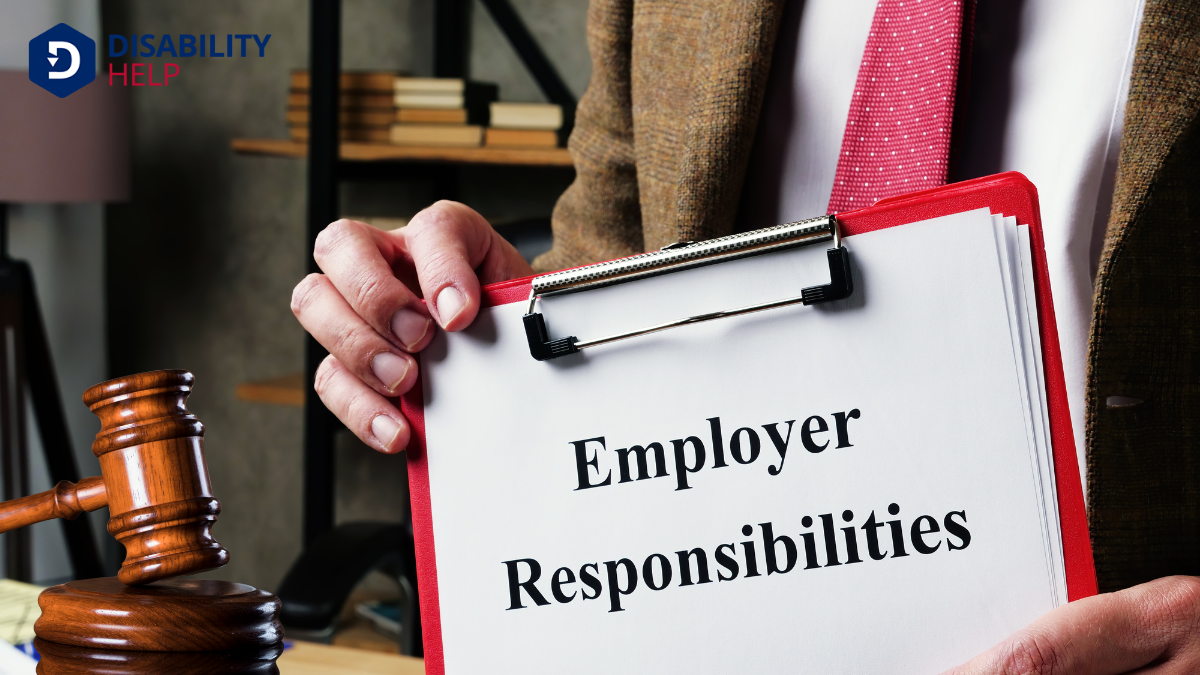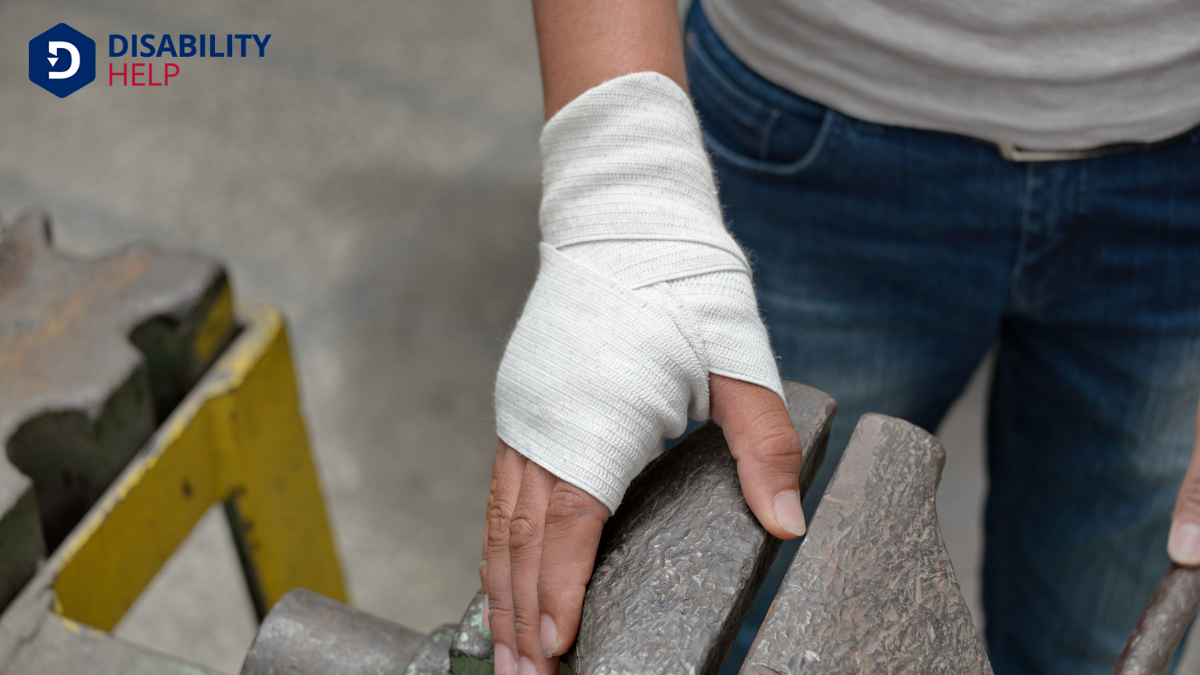As someone who's navigated the complexities of returning to work after an injury, I know firsthand how intimidating it can be when your employer seems hesitant to welcome you back. You're probably wondering if they actually have the right to refuse your return. It's not always straightforward, but understanding the intricacies of medical clearance, workplace accommodationsModifications or adjustments in healthcare settings to support patients with disabilities., and legal protections can make all the difference. So, what exactly can you do in this situation?
Key Takeaways
- Employers cannot refuse return if medical clearance confirms readiness, barring significant safety or operational concerns.
- Discrimination against injured employees returning to work is illegal under workers' compensation laws.
- Employers must make reasonable accommodations for employees cleared to return with restrictions.
- Clear communication and documentation with employers about recovery progress and needs are crucial.
- Consulting legal or union support can help resolve denied return-to-work situations.
Understanding Your Rights as an Injured Employee
When you're injured on the job, what exactly are your rights?
First, you should know that workers' compensation laws exist to protect you. These laws vary by state but generally guarantee you receive medical treatment and compensation for lost wages.
If you’re unable to work temporarily, you might be entitled to benefits until you recover. It’s essential to report your injury promptly to your employer and file a claim if needed.
You also have the right to return to your job once your doctor clears you. Knowing these rights helps you navigate the process confidently.
Employer's Legal Obligations and Responsibilities

Every employer has a duty to guarantee a safe work environment and adhere to workers' compensation laws. When you're injured, your employer must follow specific rules to support your recovery and return.
They need to cooperate with medical professionals and make reasonable accommodations if necessary. It's their responsibility to confirm that the workplace is free from hazards that could lead to further injuries.
Not only should they provide a safe place to work, but they must also respect your rights under the Family and Medical Leave Act (FMLA)A U.S. law that provides eligible employees with unpaid, job-protected leave for family and medical ... if applicable. Your employer can't discriminate against you because of your injury.
Understanding their obligations helps you confirm you're treated fairly and your rights are protected during your return to work.
Factors Influencing an Employer's Decision
Understanding why an employer might refuse to accommodate an injured employee requires examining a variety of factors.
First, consider the nature of your job. If your role involves physical labor or safety-sensitive tasks, your employer might worry about your ability to perform safely. They may also assess how your absence impacts productivity or team dynamics.
Financial constraints can play a part too; smaller companies might struggle to reassign duties or modify workspaces. Additionally, your employer's past experiences with similar situations could influence their decision. They might hesitate if previous accommodations didn't work out well.
Finally, company policies and workplace culture can greatly shape such decisions. By understanding these factors, you can better navigate the conversation with your employer about returning to work.
The Role of Medical Clearance in Returning to Work
Before returning to work after an injury, obtaining medical clearance is often a significant step. It’s essential for your employer to know you’re fit to handle your job duties safely.
Your doctor evaluates your condition and provides a medical clearance note, indicating whether you're ready to return and under what conditions. This document plays an important role in the process, as it guides your employer in accommodating any necessary adjustments to your workload or environment.
I understand that you might be enthusiastic to resume work, but ensuring your health is a priority. Medical clearance helps prevent further injuries and reassures your employer of your readiness.
It’s not just a formality; it’s about making sure you’re truly ready and capable of performing your tasks without risk.
Temporary vs. Permanent Restrictions: What They Mean for You

When you've suffered an injury, distinguishing between temporary and permanent restrictions is crucial.
Temporary restrictions are those your doctor expects will improve over time, allowing you to eventually return to your normal duties. These might include limiting the amount of weight you lift or avoiding certain movements until you heal fully.
Permanent restrictions, on the other hand, are long-term limitations that mean you won't regain full function. This could involve a change in responsibilities or even a shift in career paths.
Understanding these differences helps you communicate effectively with your employer about what you can and can't do.
It also empowers you to make informed decisions about your work future. Knowing your restrictions guarantees you're not compromising your health by resuming tasks too soon.
The Americans With Disabilities Act and Its Implications
As we explore the Americans With Disabilities Act (ADA)A U.S. law that prohibits discrimination against individuals with disabilities in all areas of publi..., it’s vital to grasp how this landmark legislation impacts your rights and responsibilities in the workplace after an injury.
The ADA guarantees that you’re not unfairly treated due to your injury, but understanding its implications is key. Here’s what you need to know:
- Reasonable AccommodationModifications or adjustments to a job or environment that enable a person with a disability to perfo...: Your employer must provide reasonable accommodations to help you perform your job unless it causes undue hardshipA legal concept that refers to significant difficulty or expense imposed on an employer or service p....
- Protected Status: If your injury qualifies as a disability, the ADA protects you from discrimination.
- Interactive Process: Engage in a dialogue with your employer about your needs and possible accommodations.
- Documentation: Keep thorough records of your communications and accommodations to safeguard your rights.
What to Do If Your Return Is Denied
If your return to work is denied, it’s essential to first understand your rights under the law.
I'd recommend consulting a legal expert who can guide you through your options and help guarantee your rights are protected.
You might also want to explore alternative solutions, like negotiating modified duties or seeking a different role within the organization.
Understand Your Rights
Facing a denial to return to work after an injury can be both frustrating and confusing, but knowing your rights is vital. You deserve to understand the steps you can take to address this situation. Here are some rights and actions to keep in mind:
- Review Your Medical Release: Verify your doctor has cleared you for work. A medical release is often a key requirement for returning.
- Know Your Employer's Policies: Familiarize yourself with your company's return-to-work policies. They should outline the process and your rights.
- Understand Legal Protections: Familiarize yourself with legal protections like the Americans with Disabilities Act (ADA) and Family and Medical Leave Act (FMLA).
- Document Everything: Keep records of all communications with your employer regarding your return to work.
Understanding these rights empowers you to navigate this challenging situation confidently.
Consult a Legal Expert
When your return to work is denied, it's vital to consult a legal expert to explore your options. I know how frustrating this situation can be, and seeking professional guidance can make all the difference.
Legal experts can help you understand whether your employer's refusal is lawful or if it's a violation of your rights. They can also explain the complexities of workers' compensation laws and help you navigate potential claims.
During our consultation, they might review any correspondence you've had with your employer and assess any documentation related to your injury. It's important to gather all relevant information beforehand to make the most of your meeting.
Explore Alternative Solutions
After consulting with a legal expert, you might feel more equipped to handle the situation, but it's also important to explore alternative solutions if your return to work is still denied.
Here are some steps you can take:
- Request a Follow-Up Meeting: Seek clarity on why you’re not being allowed back. This can also demonstrate your willingness to resolve issues amicably.
- Consider Modified Duties: Suggest a temporary adjustment to your role or responsibilities that align with your current capabilities.
- Explore Vocational RehabilitationServices that help individuals with disabilities prepare for, obtain, and maintain employment.: This can provide training and support to help you navigate into a new role or job if necessary.
- Contact Your Union: If you’re a union member, they can offer guidance and advocate on your behalf to guarantee your rights are respected.
These options can help you find a path forward.
Steps to Take for a Successful Return to Work

When planning your return to work after an injury, I recommend starting by having an open conversation with your employer.
It's important to clearly communicate your capabilities and any limitations, ensuring you understand your rights in the process.
This proactive approach can help pave the way for a smoother shift back to work.
Communicate With Your Employer
Establishing clear communication with your employer is essential for a smooth shift back to work after an injury.
Here are some steps I've found helpful:
- Notify Your Employer Early: Let them know about your recovery progress and expected return date as soon as possible.
- Provide Documentation: Share medical reports or notes from your healthcare provider to support your readiness to return.
- Discuss Work Modifications: Talk about any adjustments or accommodations you might need to perform your job safely and efficiently.
- Maintain Regular Updates: Keep your employer informed about any changes in your condition or timeline to avoid misunderstandings.
Understand Your Rights
While maintaining open lines of communication with your employer is important, knowing your rights guarantees you're protected as you prepare to return to work.
First, familiarize yourself with your state’s workers’ compensationA form of insurance providing wage replacement and medical benefits to employees injured on the job,... laws. Each state has specific rules about returning to work after an injury. You’re usually entitled to return to your previous position or a similar role, provided you're medically cleared.
Your employer must also accommodate any limitations your doctor specifies. If you're unsure about your rights, consult a workers’ compensation attorney or your state’s labor department. They can provide clarity and support.
Resources and Support for Injured Employees
Maneuvering the aftermath of a workplace injury can be intimidating, but knowing where to find resources and support can make a significant difference.
I’ve found that having the right information empowers you to make informed decisions about your recovery and return to work. Here are some key resources that might help:
- Workers’ Compensation Office: They can provide details about your benefits and rights.
- Vocational RehabilitationThe process of helping individuals with disabilities achieve and maintain their optimal physical, se... Services: These services offer job retraining and placement assistance if you can’t return to your previous role.
- Legal Assistance: Consulting an attorney guarantees you’re fully aware of your rights and options.
- Support Groups: Connecting with others who’ve faced similar challenges can offer emotional support and practical advice.
Understanding these resources can ease your journey back to work.
Conclusion
Steering a return to work after an injury can be challenging, but understanding your rights is key. Remember, your employer must comply with legal obligations and consider your medical clearance. If you're denied, don't panic—there are steps you can take, like discussing accommodations or seeking legal advice if necessary. Stay informed about your rights under workers' compensation and the ADA, and don't hesitate to reach out to support resources available for injured employees.






